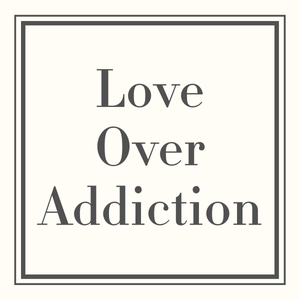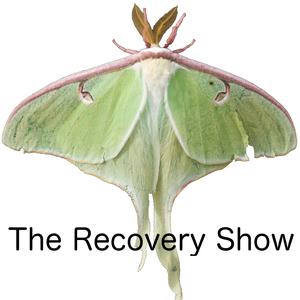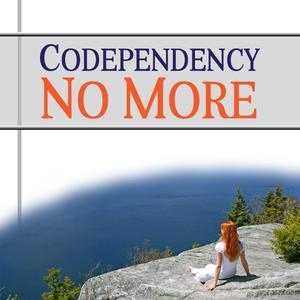
Beyond Bitchy: Mastering the Art of Boundaries
Vicki Tidwell Palmer, LCSW
- 33 minutes 43 seconds#143 - 4 Essentials for Mastering Boundaries (Part II)
Last week, I talked about the first two of the four essentials for mastering boundaries: “Who’s Got the Power?” and “Stinkin’ Thinkin’.” (If these don’t sound familiar, I recommend going back to listen to Episode 142.) This week, I’ll cover the third and fourth essentials: “Live and Let Live,” and “Change (So That I Can Feel Better).”
But before we begin, I want to share a big announcement: this will be the final episode of the Beyond Bitchy podcast. This has been a productive and fulfilling season of my life, but it’s time to bring it to a close and let the next season begin. If you want to keep up with what I’m doing next, please visit and subscribe to my Radiant Threefold Path Blog or follow me on Facebook, Instagram or YouTube. Thank you for being part of this podcast journey!
Biggest Takeaways From Episode #143:
- Others have a right to live the way they want, just as you have a right to live your life in the way you want. If you don’t like someone else’s choices, your power is in how you choose to respond.
- The fourth essential probably addresses most of the problems you have with boundaries. If you want someone to change to make you feel better, you’re in one of the biggest pitfalls of creating effective boundaries.
- When you find yourself wanting someone to change, go back to essential #1: “Who’s Got the Power?” In short, you can take action around protecting yourself, or make a request of the other person.
- The biggest challenge you will probably face is the practice of returning to you, staying with your reality, and knowing what you want.
Highlights from Episode #143:
- Welcome to episode #143! Vicki quickly recaps the first two essentials for mastering boundaries, which she discussed in detail in the previous episode. [00:39]
- The third of Vicki’s four essentials is “Live and Let Live.” She talks about this in more depth, explaining what is (and isn’t) under your control. [04:56]
- Vicki shares an example of “Live and Let Live.” [08:17]
- How somebody dresses is another example of the third essential point. [11:27]
- The fourth essential encompasses most problems you likely have with boundaries. [12:50]
- Vicki digs into what the problem is with believing that someone should change to make you feel better. [15:40]
- What should you do when you find yourself wanting someone to change? Vicki answers, then recaps the four essentials that she has covered. [17:58]
- Vicki gives an example to illustrate the difference between what you could record and what you made up. [20:14]
- Vicki makes a big announcement about the podcast: this will be the final episode. [24:24]
- Are you wondering what to do about your future boundaries challenges? Vicki promises that the answer is somewhere in the previous episodes of the podcast. She then invites you to sit down with a 5-Step Boundary Solution Clarifier, do the quiet inner work to discover your reality, your vision, where your power lies, and what action to take. [29:11]
Links and Resources:
- Vicki Tidwell Palmer
- Vicki Tidwell Palmer on Facebook
- Moving Beyond Betrayal by Vicki Tidwell Palmer
- 5-Step Boundary Solution Clarifier
- Vicki Tidwell Palmer on Instagram
- Beyond Bitchy on Spotify
- The Radiant Threefold Path
- The Radiant Threefold Path Blog
- Vicki Tidwell Palmer on YouTube
- Beyond Bitchy Podcast | Episode 142: 4 Essentials for Mastering Boundaries (Part I)
- Carolyn Myss
28 July 2021, 7:00 am - 39 minutes 50 seconds#142 - 4 Essentials for Mastering Boundaries (Part I)
I’m lucky enough to have been able to give myself the gift of a 27-day sabbatical, which gave me so much clarity into both my personal and professional life. And now that I’m back, I’m inspired to offer some insight about the four common challenges I see across all sorts of boundary questions in various situations. I’ll cover the first two challenges today, and the third and fourth next week.
Biggest Takeaways From Episode #142:
- Even if it’s only a few minutes a day, please carve out a few minutes a day for yourself. It’s important to give yourself the gift of time even if your life is incredibly full and busy.
- Most questions about boundaries, regardless of the specific details, center around four specific challenges:
- Who’s Got the Power?
- Stinkin’ Thinkin’
- Live and Let Live
- Change, So That I Can Feel Better
- There are essentially two kinds of power: “Power Over” and “Authentic Personal Power.” The first type is based in control and fear; we all need to strive for the second type.
- Stinkin’ Thinkin’ is thinking that’s distorted. You may think that how someone treats you determines how you treat them, or that you need to be on the same page and think the same way as other people.
Highlights from Episode #142:
- Vicki welcomes listeners to the episode and talks about the value of carving out some time for yourself. [00:39]
- The next Boundaries Clarifier Workshop will take place on July 27, 2021. [04:10]
- After receiving hundreds of questions, Vicki has noticed that the majority center around four specific challenges. She will cover the first two today. [05:26]
- Vicki talks about the first of the four challenges: Who’s Got the Power? [10:58]
- We hear a list of qualities that describe acting from a place of authentic personal power. She also talks about the difference between personal power and ultimatums. [15:25]
- What does it look like when you think you don’t have power? [20:43]
- Vicki moves on to talking about the second challenge: Stinkin’ Thinkin’. [26:12]
- Being unconscious of what’s going on with us is another kind of distorted thinking. Vicki shares an example from her own life. [31:53]
- Vicki explains why Stinkin’ Thinkin’ is such a problem. [36:48]
Links and Resources:
21 July 2021, 7:00 am - 18 minutes 11 seconds#141 - Are Boundaries a Sign of Disapproval?
People have a lot of misconceptions about boundaries. You may hear people say that boundaries are harsh, rigid, a punishment, or even selfish. Some people even believe that sharing boundaries is a way to control others or tell them what to do. Recently, I’ve heard another misconception: setting a boundary with someone is a sign that you disapprove of them. Tune in to learn why this isn’t the case, and how your boundaries are all about you.
Biggest Takeaways From Episode #141:
- Whether you disapprove of someone isn’t the focus or the issue when you set a boundary. To focus on approval or disapproval is a deflection away from your limits.
- If someone’s first reaction to your choice to set a boundary is to accuse you of disapproving of them, they are simply expressing their opinion, and the may be acting without accountability.
- Your limits are about you and you alone. Boundaries are a form of self-care. They’re about taking care of yourself, not disapproving of someone else.
Highlights from Episode #141:
- Welcome to the episode! Vicki chats about the reasons she started this podcast. [00:39]
- We hear about some common misconceptions about boundaries. [02:15]
- Vicki adds a new misconception to the list: if you set a boundary with another person, it means that you don’t approve of them. [05:57]
- Does setting a boundary mean that you disapprove of someone or their behavior? [09:40]
- Vicki talks about boundaries as a form of self-care, and explains with an example. [11:35]
- If you set a limit and someone calls you rigid, harsh, or disapproving, they’re changing the subject from you to them. [14:52]
- Remember that your boundaries are about you and your self-care! [17:06]
Links and Resources:
7 July 2021, 7:00 am - 31 minutes 10 seconds#140 - ENCORE - Rest, Don't Quit
Lately, have you noticed a sense of collective exhaustion, sadness, and impatience? Right now, it may feel like there’s not a lot to celebrate. This is especially true with the holidays coming up, since they're going to look much different than usual this year. With everything going on, you might feel like you want to quit, because what’s the point? If this resonates with you, it may be time for you to take a rest. Tune in to learn what this may look like for you.
Biggest Takeaways From Episode #113:
- At this time, it’s normal to feel exhausted or depleted. When you feel like quitting something that has brought you joy or will bring you joy in the future, take the time to find ways to rest rather than quit.
- Quitting may look like anything from not putting up a tree or holiday decorations this year, dropping out of school, or leaving a relationship.
- What’s causing you to want to quit? That may be the thing that you need to take a rest from. This may be watching the news—or even spending too much time thinking about things that put you in a state of fear.
- It can be valuable to let yourself consider quitting, or envision what quitting would look like, because this may help point you to how you can rest instead of quit.
Highlights from Episode #113:
- Vicki welcomes listeners to the show and introduces today’s topic, which was inspired by a workshop she attended last week. She then offers some valuable advice about Zoom meetings. [00:39]
- We hear about Vicki’s sense of witnessing collective exhaustion and impatience, and how that relates to this episode. [05:45]
- Vicki offers some examples of what it looks like to rest rather than quit, ranging from quitting school to leaving a relationship. [10:55]
- We often keep relationships going in our minds even after they’re over. Vicki gives a recommendation about getting in alignment with what you truly want. [19:12]
- The most tragic example of choosing quitting over resting is the decision to take one’s own life. If you’re feeling this way, please find someone to talk to right now. At a minimum, figure out how to take a rest to see if there’s another option for you. [22:49]
- Vicki shares some final words of advice on why it’s so important to find ways to rest. [27:40]
Links and Resources:
30 June 2021, 7:00 am - 33 minutes 17 seconds#139 - ENCORE - Extreme Self-Care and Boundaries
At some point, all of us will have experiences that require us to focus our attention on ourselves in an intense way. For example, an advanced cancer diagnosis, an accident, or shocking news may require you to go into extreme self-care. This is the kind of self-care I’ve been practicing for the last several weeks, and why there was a gap between Episode #49 and #50. I’m so glad to be back!
Biggest Takeaways From Episode #50:
- At certain points in our lives, each of us needs to go into what Vicki calls “emotional ICU.” This, she explains, is why there has been a gap between the last episode and this one — she has been in her own emotional ICU.
- If you tend to put others ahead of yourself and give too much, you might struggle with practicing extreme self-care when you need to.
- Here are some ideas for extreme self-care: delegate daily tasks that you usually do yourself (like cooking), temporarily neglect things that simply aren’t that important, set up an auto reply for your email, or take a step back from your online presence.
- When you want to support and help others, you need to be coming from a place of fullness and abundance. The world needs you to take care of yourself so that you can give back to the world.
Highlights from Episode #50:
- Welcome back to the Beyond Bitchy Podcast! Vicki acknowledges the gap between the last episode and this one. [00:39]
- Vicki digs deeper into why she has been absent, and relates her explanation to previous points about boundaries. [02:51]
- Let’s talk about extreme self-care, with examples of what it looks like. [07:54]
- Why should we embrace the fact that it’s okay to practice extreme self-care? [11:23]
- Vicki shares something she has learned over the past few months: how hard it is to ask for help when you need it. [14:37]
- We hear some specific examples of extreme self-care. [19:01]
- Vicki loves drinking a variety of teas from all over the world, and talks about how she used the experience of having a cup of tea as a form of self-nurturing during her recent emotional ICU period. [24:20]
- We learn about how extreme self-care relates to boundaries. [26:09]
- Vicki gives listeners a homework assignment related to self-care. [29:14]
Links and Resources:
23 June 2021, 7:00 am - 22 minutes 39 seconds#138 - ENCORE - Rest, Rejuvenation, & Boundaries
Today’s episode is all about rest, rejuvenation, and boundaries, which absolutely relate to one another! I’ll explain why rest is so important and why it’s so difficult to unplug in our uber-connected, device saturated world. I’ll also give you some tips on how to truly rest and enter into states of being rather than doing, and why rest is crucial for health, creativity, and even productivity.
Biggest Takeaways From Episode #31:
- To create spaces of time off—whether for a few hours or a few weeks—you must to create limits on multiple levels.
- We all need sleep, time away from work, and time away from devices and media. However, the mind feeds on being perpetually occupied and fixating on problems., Technology, social media, and devices make it difficult to exercise the discipline to unplug and rest.
- Rest, in all of its forms, is an important part of self-care. It’s also important for our creativity, and productivity, as well as connection with others and intimacy.
- When you decide to unplug and rest, ideally you should define how long you’re going to rest and be mindful of technology that keeps you distracted or tempts you away from rest and rejuvenation.
Highlights from Episode #31:
- Vicki explains why there wasn’t a new episode last week, talks about what she’s doing in California, and explains what this episode is all about. [01:31]
- What do unplugging and rest have to do with boundaries? [03:03]
- We learn what Vicki means by “rest,” and learn a nature metaphor for resting. [05:26]
- Vicki shares more dangers of not getting enough rest in our hyper-connected world. [11:02]
- We hear some ways to unplug, truly rest, and enter into being rather than doing. [13:14]
- Vicki invites listeners to think about at least one area where they can create more space for rest. [18:46]
Links and Resources:
16 June 2021, 7:00 am - 23 minutes 55 seconds#137 - Trade Your Triangles for Straight Lines
Are you ready to trade your triangles for straight lines? Don’t worry, you’re not back in geometry class; this is actually related to the talking boundary. Triangulation is something that we do all the time, but we should all work toward straightening out those lines and practicing direct communication whenever possible. (There are a few notable exceptions, which I’ll also address in this episode.)
Biggest Takeaways From Episode #137:
- Triangulation describes a common but harmful form of communication. To understand it, think of a triangle pointing upward. Person A is at the point on top. Person B and Person C are at the other two points of the triangle. Triangulation happens when Person A goes to Person B to talk about (or try to get information to or from) Person C.
- The problem with triangulation is that it’s an indirect, ineffective, and often manipulative form of communication.
- The solution is to avoid triangulation. You can do this by removing your side of the triangle, creating a straight line directly between the two people who want to communicate.
Highlights from Episode #137:
- Vicki welcomes listeners, and shares what she’ll be talking about today. [00:39]
- What is triangulation? Vicki offers an explanation to clarify the possibly unfamiliar term. [01:56]
- We hear some examples of how triangulation commonly happens. [06:51]
- The problem with triangulation is that it’s indirect and ineffective, Vicki explains. It’s also often manipulative. [11:22]
- What’s the solution for this communication triangulation? [12:40]
- Vicki shares some examples of how you can avoid triangulation, even if it’s something you’ve participated in previously. [14:55]
- Practicing the tools that Vicki has recommended helps to keep communication clean and direct. [19:03]
- Vicki recaps what she has talked about in today’s episode. [22:33]
Links and Resources:
9 June 2021, 7:00 am - 26 minutes 22 seconds#136 - When Someone You Love Is in Danger
People in your life may be facing a variety of dangers, from mental health issues or suicidal urges to addiction or unsafe behavior. But today, I’ll focus on a specific type of danger: physically or sexually abusive relationships. It’s painful to know (or suspect) that a loved one is in a relationship like this, but it’s also tough to know what to do. I’ll give you some specific advice on how to proceed—and what to avoid doing.
Biggest Takeaways From Episode #136:
- Here are some things to do when your loved one is in an abusive relationship:
- Express concern and your willingness to help.
- Give them a way to alert you that you need to call the police or help them get out of the situation.
- Call the police if you know or have very good reason to believe that your loved one is in danger. Don’t hesitate; just do it!
- Send your loved one healing energy, thoughts, and/or prayers.
- Ask yourself whether what you’re planning to do might put this person in danger.
- There are also some things you should avoid doing in these circumstances:
- Don’t communicate in writing about their relationship or safety issues (unless it’s a time-sensitive emergency).
- Don’t suggest that the person in an abusive relationship should go to couple’s therapy.
- Don’t confront or agitate the abuser.
- Don’t judge your loved one who is being abused.
- Be aware that the most dangerous time for an abused person is right after they leave their abuser. The abused person should go to a domestic violence shelter (rather than a loved one’s house) when they leave, because the shelter will have resources to help.
Highlights from Episode #136:
- Welcome to episode 136! Let’s talk about what to do in terms of your boundaries when someone you love is in a specific kind of danger. [00:39]
- Vicki starts things off by sharing some statistics from the National Coalition Against Domestic Violence. [04:47]
- What are some things you should not do when you’re dealing with someone facing domestic violence? [07:20]
- Vicki talks about the most dangerous time for someone leaving an abusive relationship. [12:42]
- We learn some things that you can or should do in this type of situation. [15:24]
- Vicki shares a resource: the National Domestic Violence Hotline. You can call or text them at (800) 799-7233. [21:35]
- What if someone you love doesn’t want to talk about it? [22:35]
Links and Resources:
- Vicki’s monthly Boundaries Clarifier Workshops
- Vicki Tidwell Palmer
- Vicki Tidwell Palmer on Facebook
- Moving Beyond Betrayal by Vicki Tidwell Palmer
- 5-Step Boundary Solution Clarifier
- Vicki Tidwell Palmer on Instagram
- The Radiant Threefold Path
- Beyond Bitchy on Spotify
- National Coalition Against Domestic Violence
- The National Domestic Violence Hotline - or call or text them at (800) 799-7233
2 June 2021, 7:00 am - Here are some things to do when your loved one is in an abusive relationship:
- 37 minutes 11 seconds#135 - When Your Ex Doesn't Behave
Before we start, I’d like to offer you a quick apology! You may not have been able to find the earliest episodes of the show because of a mistake in the podcast settings on the back end. That’s fixed now, and you should be able to access all of the episodes again. And now, onto today’s subject! If you have an ex, especially if you’re co-parenting with them, I’m guessing you’ve had a problem with your ex misbehaving. So what do you do? Tune in to find out!
Biggest Takeaways From Episode #135:
- Co-parenting children with an ex is always a challenge, but it’s harder when your ex has issues or misbehaves. Unfortunately, there’s not a lot that we can do about other people’s behavior.
- If your ex is doing unsafe things with your children (such as abuse or drunk driving), you will need to intervene in some way. These issues of safety are in a separate category from other misbehavior from your ex.
- Some things I recommend against doing include:
- Bad-mouthing your ex to your children
- Trying to control anything about your ex that’s outside of your control
- Telling yourself that your children can’t see what you see about your ex
- Putting your children in the middle
Highlights from Episode #135:
- Vicki welcomes listeners back to the podcast, and makes a quick announcement. She then uses the inconvenience in question as a teaching moment. [00:39]
- We move to today’s topic: exes who don’t behave. Vicki offers some examples of ways that an ex can be distressing as a co-parent. [05:09]
- Sometimes an ex might subject children to unsafe things, such as physical or sexual abuse or drunk driving. [10:53]
- Vicki shares some things that she recommends that you not do. [13:07]
- Don’t assume that your children don’t see what you see about your ex-spouse, or put them in the middle. [17:16]
- Are there different boundaries rules with your ex than with other people in your life? [22:08]
- For everything outside of safety issues, you have no control over how your ex parents. Vicki offers some tips on how you can feel better about this situation. [26:48]
- Things you can do in this situation include sending healing and positive wishes to your children—and even your ex, if you can without forcing it. [31:17]
Links and Resources:
26 May 2021, 7:00 am - 32 minutes#134 - Using the Talking Format (Part 3 of a Deeper Dive Into the Talking Boundary)
Are you ready for the third part of my series on the talking boundary? This one is all about a specific process from the work of Pia Mellody: the Talking Format. This strategy is a roadmap around how to share information with another person, and is ideal for challenging conversations. If you’ve ever found yourself struggling with how to express yourself effectively in a difficult interpersonal situation, don’t miss this episode!
Biggest Takeaways From Episode #134:
- The Talking Format consists of three parts:
- Tell the other person about the data you observed to give a concrete example of the issue you’re raising.
- Explain what you thought, perceived, or made up based on the data.
- Share the emotions that you feel around the situation.
- When you’re using the Talking Format, make sure you have enough physical space to say what you want to say. Pay attention to what your body is telling you.
- The purpose of sharing is to be known and foster intimacy, not to blame, shame, control, criticize, or manipulate. If you become aware that your intention is to control or manipulate, you’re not yet ready to have the conversation.
Highlights from Episode #134:
- Welcome to the third and final part of Vicki’s series on the talking boundary! Check out the last two episodes if you haven’t yet heard part one one and part two of the series. [00:39]
- What is the Talking Format? Vicki shares the three basic steps. [03:45]
- Vicki offers an example to help illustrate how to use the technique she’s sharing today. [08:34]
- We learn more about how to use the Talking Format as part of the talking boundary. [12:22]
- When you’re sharing, remind yourself that you’re not blaming the other person. [15:39]
- You can approach a solution by expressing how you would prefer things to be. Vicki talks about how this might work in her example. [20:57]
- Vicki shares one last point about the Talking Format: it’s an actionable way to use the first step of the 5-Step Boundary Solution. [26:46]
Links and Resources:
- Vicki’s monthly Boundaries Clarifier Workshops
- The Talking Format (handout referenced in this episode)
- Vicki Tidwell Palmer
- Vicki Tidwell Palmer on Facebook
- Moving Beyond Betrayal by Vicki Tidwell Palmer
- 5-Step Boundary Solution Clarifier
- Vicki Tidwell Palmer on Instagram
- The Radiant Threefold Path
- Beyond Bitchy on Spotify
- Beyond Bitchy Podcast | Episode #132 – She Said What?! Part I of A Deeper Dive Into the Talking Boundary
- Beyond Bitchy Podcast | Episode #133 – Speaking to Be Heard (Part 2 of a Deeper Dive Into the Talking Boundary)
- Beyond Bitchy Podcast | Episode #1 – Boundaries: What They Are and Why They’re So Misunderstood (start here and work your way forward for the foundations of this podcast!)
- Pia Mellody
19 May 2021, 7:00 am - The Talking Format consists of three parts:
- 36 minutes 43 seconds#133 - Speaking to Be Heard (Part 2 of a Deeper Dive Into the Talking Boundary)
If you haven’t heard last week’s episode yet, I recommend listening to that one too if you’re interested in this exploration of the talking boundary. In that episode, I covered what the talking boundary is, and what talking boundary violations look like. This time, I’ll move into what it looks like when you have a healthy, effective talking boundary. I’ll also share some questions to ask yourself to help ensure your talking boundary is in great shape.
Biggest Takeaways From Episode #133:
- The first way to use a healthy talking boundary is to say what you would like or what you want, instead of saying what the other person did that you didn’t like.
- Another important way to use your talking boundary in a healthy way is to lead with agreement. Mastering your listening boundary will also help you develop a strong, healthy talking boundary.
- Here are some questions to ask yourself when you’re using the talking boundary:
- Is the other person in a position to really hear me and take in what I’m saying?
- What response do I expect to get from this person?
- Do I need to speak my truth regardless of the response?
- Can I express what I want to say in a way that’s completely about me?
- Would it be better if I waited for 24 hours to say what I want to say?
Highlights from Episode #133:
- Did you catch last week’s episode? This one continues the exploration of the talking boundary that Vicki started then. [00:39]
- Vicki shares some thoughts on the question behind the question, “Are talking boundary violations verbal abuse?” [04:09]
- We learn the first way to use a healthy talking boundary, with Vicki offering an example from her own life. [07:27]
- Vicki offers some general questions to ask yourself before you speak. [13:07]
- It’s important to think of what your intention is before you express yourself, Vicki points out. [23:47]
- Leading with agreement is the second way to use a healthy talking boundary. [26:36]
- We learn about how one-word responses (or even silence) can work. [29:24]
- Vicki explains that mastering the listening boundary is the best way to strengthen your talking boundary. [32:15]
Links and Resources:
- Vicki’s monthly Boundaries Clarifier Workshops
- Vicki Tidwell Palmer
- Vicki Tidwell Palmer on Facebook
- Moving Beyond Betrayal by Vicki Tidwell Palmer
- 5-Step Boundary Solution Clarifier
- Vicki Tidwell Palmer on Instagram
- The Radiant Threefold Path
- Beyond Bitchy on Spotify
- Beyond Bitchy Podcast | Episode #37 – The Listening Boundary Part I
- Beyond Bitchy Podcast | Episode #39 – The Listening Boundary Part 2: How It Works
- Beyond Bitchy Podcast | Episode #40 – The Listening Boundary Part 3: High Quality Listening = Higher Quality Responses
- Beyond Bitchy Podcast | Episode #132 – She Said What?! Part I of A Deeper Dive Into the Talking Boundary
12 May 2021, 7:00 am - More Episodes? Get the App
Your feedback is valuable to us. Should you encounter any bugs, glitches, lack of functionality or other problems, please email us on [email protected] or join Moon.FM Telegram Group where you can talk directly to the dev team who are happy to answer any queries.
 Love Over Addiction
Love Over Addiction
 The BTR.ORG Podcast - Betrayal Trauma Recovery
The BTR.ORG Podcast - Betrayal Trauma Recovery
 Lisa A Romano Breakdown to Breakthroughs
Lisa A Romano Breakdown to Breakthroughs
 The Recovery Show » Finding serenity through 12 step recovery in Al-Anon – a podcast
The Recovery Show » Finding serenity through 12 step recovery in Al-Anon – a podcast
 The Adult Chair
The Adult Chair
 Codependency No More Podcast
Codependency No More Podcast